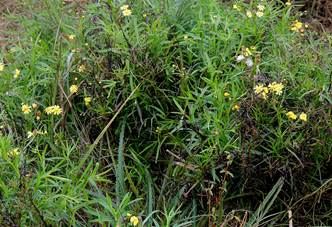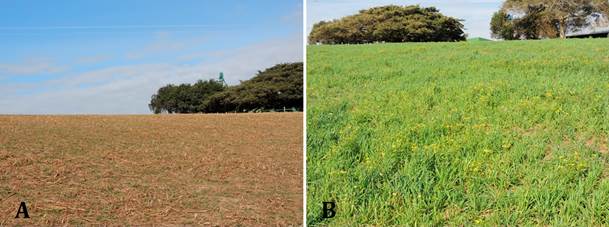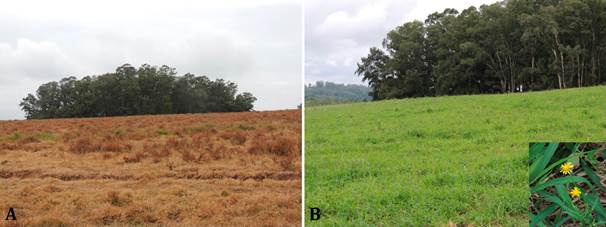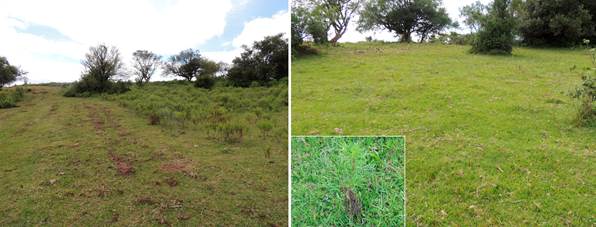ABSTRACT:
In order to test different technics to control Senecio madagascariensis, three experiments were carried out. In the first, 40 sheep were placed in an area of four hectares for 90 days, with medium/high levels of infestation by the plant. The area after this period was desiccated with glyphosate (Roundup®) and seeded with Lotus corniculatus L., Trifolium repens, Medicago sativa and Festuca arundinacea Schreb. by direct seeding. After eight months, sheep returned to the area for another 90 days. The second experiment was conducted with 10 sheep grazing for 30 days and 60 days’ rest, in three areas of 0.5 hectares each, with low, medium and high levels of S. madagascariensis infestation. The third experiment was carried out using drying, plowing and cultivated pasture (legumes and grasses) for three consecutive times without the use of sheep in an area infested by the plant. For the control of S. brasiliensis and other species of the genus, a fourth experiment was performed on a farm with history of intoxication by Senecio spp. in cattle. Eighty-six sheep were used in an area of 90 hectares for a year. The results of these experiments demonstrated that sheep consume and decrease the amount of S. madagascariensis in infested areas. Furthermore, it also indicated that S. madagascariensis to be efficiently controlled requires continuous grazing with at least four sheep per hectare. Practices as drying the pastures with herbicides, tillage and pasture planting can help eliminate the plant in long-term plan. In areas with S. brasiliensis infestation mowing can be an effective practice, mainly due to the high size of the plant, since it facilitates consumption by sheep.
INDEX TERMS:
Poisonous plants; Senecio madagascariensis; Asteraceae; hepatotoxic plants; seneciosis; plant poisoning; cattle; toxicoses

 Thumbnail
Thumbnail
 Thumbnail
Thumbnail
 Thumbnail
Thumbnail
 Thumbnail
Thumbnail
 Thumbnail
Thumbnail
 Thumbnail
Thumbnail
 Thumbnail
Thumbnail






